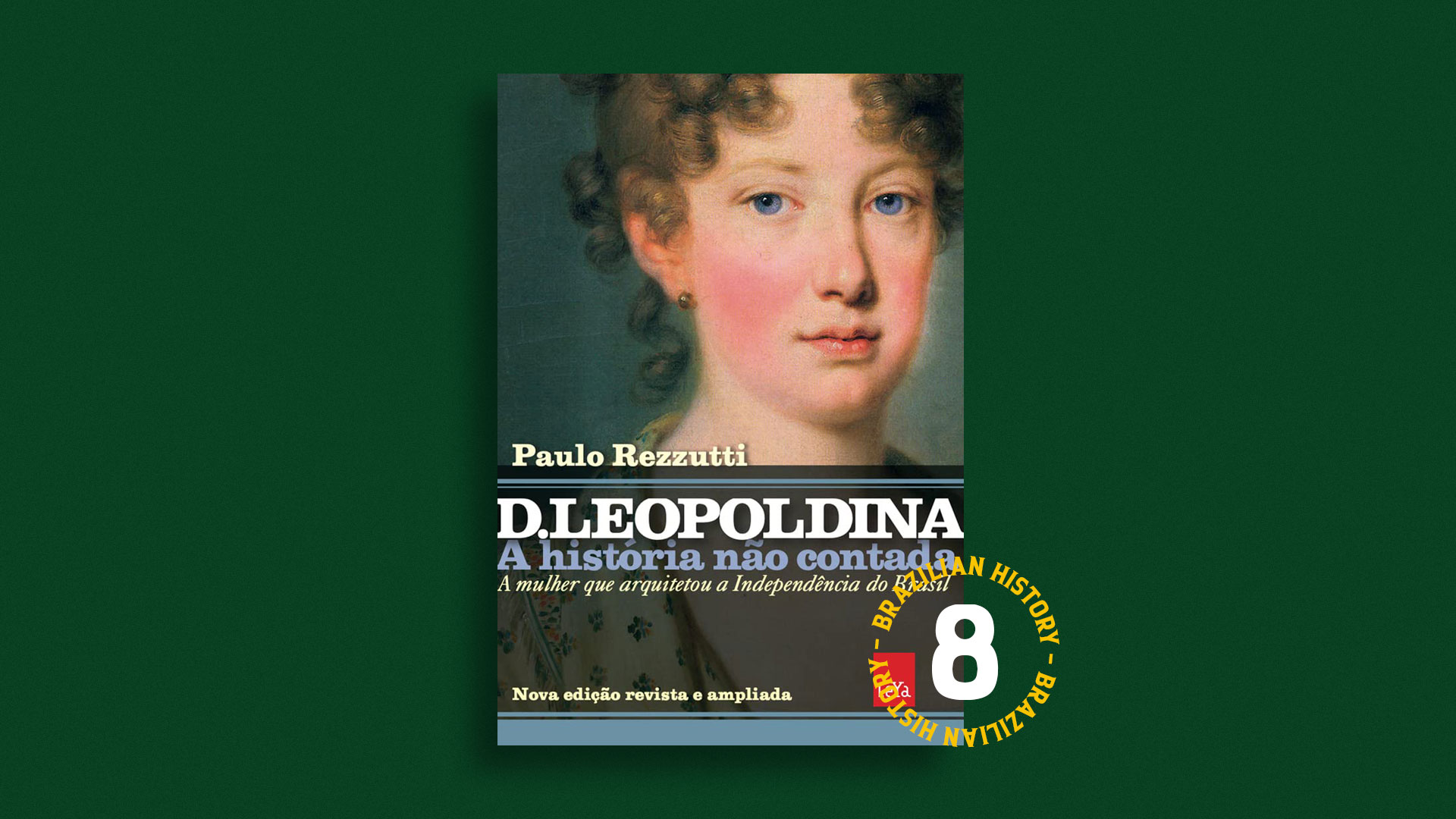The book “D. Leopoldina: The Untold Story – The Woman Who Engineered Brazil’s Independence” by Paulo Rezzutti is an account that seeks to shed light on the importance of D. Leopoldina, the archduchess of Austria and wife of D. Pedro I of Brazil, in the history of Brazil’s independence. The book highlights Leopoldina’s influential and significant involvement in the country’s political scene, often underestimated and overlooked by official history.

Maria Leopoldina is known as part of a famous love triangle in Brazilian history, but her story goes beyond that. Born in Austria, she departed Europe in 1817 and became crucial in Brazil’s Independence, revealing herself as a significant political strategist. Paulo Rezzutti’s book describes her complex, intense, and brief life, showcasing her nuances, a blend of fears and courage, strength, and vulnerability. The biography reveals lesser-known aspects of Brazil’s first empress, featuring unseen images and original documents.
The book’s introduction reveals not only the main figure, Dona Leopoldina, but also debunks myths and questions the image that many Brazilians have of her, offering insightful criticism about how this historical figure has been portrayed over the years.
One of the peculiarities of the revised and expanded edition, in which the reading was done, is the inclusion of unseen images of Leopoldina, such as a miniature made by Bernhard von Guérard and an engraving from the book “Immortals of the Homeland in Austrian Historical Circles,” discovered in the last five years. These images contribute to the immersion in history.
The meticulous research on the Habsburg dynasty and the historical context, especially during the Napoleonic times, reveals the pressure endured by the Austrian dynasty from the French forces and provides an important backdrop to understand Leopoldina’s life. Through letters sent by Leopoldina to her sister and other correspondences of that time, the reader is transported behind the scenes of her life, including her marriage, studies, and more personal aspects.
The book unveils the various masks that Leopoldina wore with different interlocutors, from the obedient daughter to the passionate wife and the influential advisor to Dom Pedro I. It also reveals her initial reluctance in understanding the demands of Brazil and the world. The author also offers insights into the relationship between Leopoldina and Dom Pedro I, demystifying legends and highlighting the empress’s influence and popularity at the court and on the streets of Brazil.
However, the book presents some gaps, such as the lack of details about English interferences in Leopoldina’s journey to Brazil, which could have been explored more deeply to provide greater credibility to the presented facts. While contextualizing many events, at certain points, the author allows the narrative to drift into specific data, requiring the reader to make an effort to understand the reasons behind certain historical situations.
The addition of an image section halfway through the book attempts to illustrate the events, but amassing these images halfway through may not appeal to all readers. In “D. Leopoldina: The Untold Story – The Woman Who Orchestrated the Independence of Brazil,” there is also a contradictory issue about Leopoldina’s freedom, suggesting that Dom Pedro I restricted her outings, which contrasts with his liberal ideas. This aspect, though intriguing, would warrant a more in-depth analysis.
“D. Leopoldina: The Untold Story: The Woman Who Orchestrated Brazil’s Independence” offers a rich and detailed insight into the tense life and the pivotal role of Leopoldina in Brazil’s history, presenting unpublished documents, primary sources, and debunking many myths surrounding the empress’s figure.
Reference: REZZUTTI, Paulo. D. Leopoldina: a história não contada: A mulher que arquitetou a independência do Brasil. Brazil: Leya, 2022.

Matheus Araújo
Matheus Araújo is the founder and editor of Brazilian History. Born in Rio de Janeiro and holding a degree in Advertising and Marketing, his passion for history led him to enroll at the Federal University of the State of Rio de Janeiro, where he is currently pursuing a degree in History Education.
